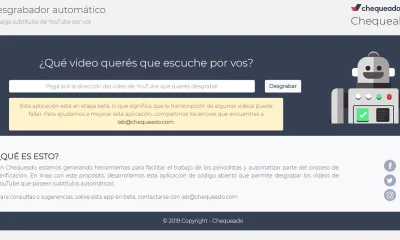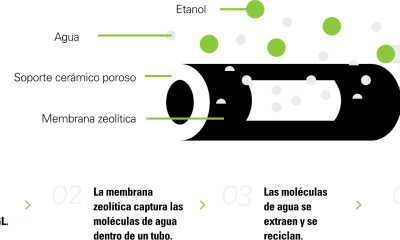Health
Unveiling the Mystery of Kecveto: Exploring the Enigmatic World of… What Exactly?
Published
3 months agoon
By
robert log
Introduction
Defining Kecveto Kecveto, an enigmatic term that has sparked curiosity among scholars and enthusiasts alike. In this article, we delve into the depths of Kecveto, unraveling its mysteries and exploring its significance in various contexts.

Origins and Background The origins of are shrouded in mystery, with conflicting accounts and interpretations. Some trace its roots back to ancient civilizations, while others believe it to be a modern phenomenon. Understanding its background is crucial in deciphering its true nature.
Modern Significance Despite its elusive nature, holds significance in contemporary society. From cultural references to scientific studies, it continues to intrigue and captivate the imagination of many.
Understanding Kecveto
What is Kecveto? defies easy categorization. It is neither a tangible object nor a concrete concept. Instead, it exists in the realm of speculation and conjecture, drawing fascination from those who encounter it.
The Intriguing History Ancient legends and cultural references provide glimpses into the rich tapestry of history. From mythical tales to artistic depictions, it has left an indelible mark on human civilization.
The Enigmatic Characteristics What sets apart are its unique properties and mystical beliefs associated with it. From supposed healing powers to its role in ancient rituals, the allure of lies in its enigmatic nature.
Exploring the Enigmatic World of Kecveto
Unraveling the Mysteries As we delve deeper into the world of , we encounter a myriad of mysteries waiting to be unraveled. Each discovery opens new avenues of inquiry, fueling our curiosity further.
Cultural Significance Across different cultures, holds varying degrees of significance. From religious ceremonies to artistic expressions, it serves as a symbol of mystery and wonder.
Scientific Exploration In recent years, scientists have turned their attention to , seeking to uncover its secrets through rigorous study and analysis. Geological studies and chemical composition analysis offer insights into its nature and potential applications.
The Intrigue Continues
Contemporary Views In the age of information, continues to capture the imagination of people worldwide. Its presence in pop culture and the proliferation of urban legends only add to its mystique.
Urban Legends From sightings of mythical creatures to alleged supernatural encounters, urban legends surrounding abound. Each story adds another layer of intrigue to the ever-growing mythos.
Origins and Background
The origins of are shrouded in mystery, with conflicting accounts and interpretations. Some trace its roots back to ancient civilizations, while others believe it to be a modern phenomenon. Understanding its background is crucial in deciphering its true nature.
Modern Significance
Despite its elusive nature, holds significance in contemporary society. From cultural references to scientific studies, it continues to intrigue and captivate the imagination of many.
Conclusion
Wrapping Up the Mystery In conclusion, Kecveto remains an enigma, defying easy explanation or categorization. Its allure lies in its ability to evoke wonder and curiosity, serving as a reminder of the mysteries that still abound in our world.
: A Symbol of Intrigue and Wonder As we continue to explore the depths of , we are reminded of the beauty and complexity of the world around us. It is a symbol of the enduring human spirit, ever curious and eager to unravel the mysteries of existence.

FAQs
- What exactly is Kecveto?
- is a term that encompasses a range of mysterious phenomena, often associated with supernatural or mystical properties.
- Are there any scientific studies on Kecveto?
- Yes, scientists have conducted studies on Kecveto, exploring its geological and chemical composition to better understand its nature.
- What role does Kecveto play in popular culture?
- Kecveto has appeared in various forms of popular culture, from literature to films, often depicted as a symbol of mystery and intrigue.
- Are there any real-world examples of Kecveto sightings?
- While many urban legends and alleged sightings exist, concrete evidence of Kecveto remains elusive.
- How can one experience Kecveto firsthand?
- Experiencing Kecveto firsthand often involves delving into the realms of mythology, folklore, or engaging in scientific exploration in areas where it is said to manifest.
You may like
Health
Eggshell Parenting: what are egg shell parenting
Published
3 days agoon
September 5, 2024By
admin
what are egg shell parenting Parenting plays a critical role in shaping a child’s emotional, psychological, and social development. Among the various approaches to parenting, some styles are overly cautious and protective. One such style is “eggshell parenting,” where parents exhibit extreme care, protecting their children from discomfort, failure, or any form of emotional distress. The name “eggshell” symbolizes the fragility with which these parents perceive their children, treating them as what are egg shell parenting though they might crack under the slightest pressure. While well-meaning, this approach can have unintended negative consequences for children’s development. Eggshell parenting is similar to other protective styles, such as helicopter or snowplow parenting, but its focus lies more in shielding children from emotional challenges rather than pushing them toward achievement.what are egg shell parenting
The Characteristics of Eggshell Parenting
Eggshell parenting is defined by a few key behaviors that stem from the desire to protect children from any emotional discomfort or challenges. These characteristics include:
- Overprotection: Eggshell parents what are egg shell parenting are excessively protective, constantly trying to shield their children from failure, disappointment, or hardship. They may go to great lengths to prevent their children from encountering any negative experiences.
- Avoidance of Conflict: Parents who practice eggshell parenting tend to avoid any form of confrontation or emotional discomfort for their children. This includes stepping in to solve disputes between their child and peers or preventing any situation that might cause stress or anxiety.
- Excessive Involvement: These parents often take a very active role in their child’s life, including schoolwork, extracurricular activities, and social interactions. They may complete tasks for their child to ensure success or prevent failure.
- Fragility Perception: Eggshell parents view their children as emotionally fragile, believing that even minor disappointments or challenges could cause significant distress. They tend to walk on eggshells, metaphorically, around their children to avoid causing upset.
Psychological Impact on Children
Although the intentions behind what are egg shell parenting eggshell parenting are good, this style can inadvertently harm a child’s emotional and psychological development. Children need to experience challenges and adversity to develop resilience and emotional strength. However, eggshell parenting prevents them from having these essential experiences, leading to various negative outcomes.
- Lack of Emotional Resilience: One of the most significant consequences of eggshell parenting is that children may fail to develop emotional resilience. They do not learn how to handle failure, rejection, or disappointment because their parents shield them from these experiences. As a result, when they face challenges later in life, they may struggle what are egg shell parenting to cope effectively, feeling overwhelmed by situations that others may handle with ease.
- Low Self-Esteem: When parents are constantly stepping in to protect or help their child, the message conveyed is that the child is not capable of handling the situation on their own. Over time, this can lead to feelings of inadequacy and low self-esteem. Children may come to believe that they are not competent enough to face challenges without their parent’s intervention, leading to a dependency on external support.
- Fear of Failure: Failure is an important learning experience that fosters growth and problem-solving skills. In eggshell parenting, failure is seen as something to be avoided at all costs. This teaches children that failure is a catastrophic event, rather than a natural part of life. As a result, they may develop a deep fear of failure, avoiding risks and new challenges because they are afraid of making mistakes.
- Inability to Handle Stress: Children raised under eggshell parenting may also develop a heightened sensitivity to stress. Since they have been what are egg shell parenting protected from stressful situations, they may not know how to manage stress effectively when it inevitably arises. This can lead to increased anxiety and difficulty adapting to life’s normal ups and downs.
Social Consequences
Eggshell parenting can also have a profound effect on a child’s social development. Social interactions often involve conflict, negotiation, and compromise—skills that are vital for maintaining healthy relationships. However, eggshell parenting can prevent children from learning these social skills what are egg shell parenting by intervening in social conflicts or avoiding situations where the child might face discomfort.
- Poor Conflict Resolution Skills: Children who grow up with eggshell parents may struggle to resolve conflicts on their own. Since their parents often step in to handle any disputes, these children do not learn how to navigate disagreements with peers. This can lead to difficulties in maintaining friendships and building meaningful relationships in the future.
- Social Dependency: Eggshell parenting can foster a dependency on the parent in social situations. The child may rely on their parent to guide them through interactions, make decisions for them, or solve problems. As a result, they may feel unsure or anxious in social settings where they are expected to act independently.
- Difficulty Forming Healthy Relationships: The combination of low self-esteem, fear of failure, and poor conflict resolution skills can make it difficult for children of eggshell parents to form healthy, balanced relationships. what are egg shell parenting They may become overly reliant on others for emotional support or may struggle to assert themselves in relationships, leading to imbalanced dynamics.
Long-Term Implications
The effects of eggshell parenting are not limited to childhood; they can extend well into adulthood. As children grow older, they are expected to take on more responsibilities and navigate increasingly complex social and professional environments. However, children of eggshell parents may what are egg shell parenting find these transitions particularly challenging due to the overprotection they experienced during their upbringing.
- Delayed Independence: One of the most common long-term effects of eggshell parenting is delayed independence. Children who were overly protected may find it difficult to take on adult responsibilities, such as managing finances, making career decisions, or living independently. They may continue to rely heavily on their parents for guidance and support, even in situations where they should be acting autonomously.
- Difficulty Handling Adult Stressors: Adults who were raised by eggshell parents may struggle to handle the stressors that come with adult life. what are egg shell parenting Since they were shielded from stress and adversity during childhood, they may lack the coping mechanisms needed to manage difficult situations, leading to higher levels of anxiety or burnout.
- Overly Cautious Decision-Making: The fear of failure instilled by eggshell parenting can persist into adulthood, leading to overly cautious decision-making. Adults raised by eggshell parents may avoid taking risks in their careers, relationships, what are egg shell parenting or personal growth, limiting their opportunities for success and fulfillment.
Balancing Protection with Growth
While it is natural for parents to want to protect their children from harm, it is important to find a balance between protection and allowing children the space to grow and develop independently. One alternative approach is authoritative parenting, which encourages independence while providing appropriate guidance and support. Authoritative parents set clear expectations, but they also allow what are egg shell parenting their children to experience challenges, make mistakes, and learn from their experiences.
By allowing children to face adversity in a controlled environment, parents can help them develop resilience, problem-solving skills, and emotional strength. It is crucial for children to understand that failure is not something to be feared, but rather an opportunity for growth.
Conclusion
Eggshell parenting, while rooted in love and concern, can hinder a child’s development by preventing them from experiencing the natural challenges of life. Children raised in this environment may struggle with low self-esteem, what are egg shell parenting fear of failure, and an inability to cope with stress. The social and emotional consequences of eggshell parenting can extend into adulthood, affecting relationships, career success, and overall well-being.
To foster healthy development, parents must strike a balance between protecting their children and allowing them to grow independently. By encouraging children to face challenges, experience failure, and solve problems on their own, parents can raise resilient, capable individuals who are well-equipped to navigate the complexities of life.
Health
Egg shell Parenting: The Dangers of Overprotective Parenting
Published
3 days agoon
September 5, 2024By
admin
Egg shell Parenting Parenting styles significantly impact the emotional, psychological, and social development of children. While there are various approaches, some parenting styles are more prone to producing negative outcomes. One such style is “eggshell parenting,” a term that refers to a parenting approach characterized by overprotection, excessive caution, and an overwhelming desire to shield children from failure, discomfort, or any challenges. Parents who practice this style metaphorically treat their children as fragile, like walking on eggshells around them to avoid emotional distress or hardship. Although well-intentioned, this parenting style can have profound, unintended consequences for children’s growth and development.Egg shell Parenting
The Core of Eggshell Parenting
Eggshell parenting is driven by Egg shell Parenting the desire to protect children from the harsh realities of life. Parents practicing this style are often deeply involved in their children’s lives, constantly intervening to ensure that their children avoid disappointment, frustration, or failure. This over-involvement can manifest in various ways, such as stepping in to resolve conflicts with peers, managing every aspect of their child’s schoolwork, or making decisions on their behalf well into adolescence.
While parents believe they are helping their children Egg shell Parenting avoid harm, they might inadvertently prevent their children from developing resilience, independence, and problem-solving skills. Children raised under this style often grow up in an environment where they are shielded from adversity, which can make it difficult for them to navigate challenges independently as they mature.
The Psychological Impact on Children
The psychological effects of eggshell parenting can be long-lasting. Children need to experience challenges and setbacks to develop resilience and adaptability. In environments where parents prevent their children from Egg shell Parenting encountering stress or difficulty, children may grow up with a diminished capacity to cope with the inevitable hardships of life. This overprotection can lead to increased anxiety and fear of failure as the child reaches adulthood.
One of the key issues associated with eggshell parenting is learned helplessness. This occurs when children, having been deprived of opportunities to solve their own problems or face challenges, begin to believe that they are incapable of handling difficulties independently. This mindset can be particularly damaging in adulthood when the individual is expected to make independent decisions and manage the complexities of life without parental intervention.
Moreover, children of eggshell parents may struggle with low self-esteem. Shielding children from failure also deprives them of the opportunity to experience the satisfaction of overcoming obstacles. When children are constantly rescued or given the impression that they need help with even the smallest tasks, Egg shell Parenting they may come to doubt their abilities and develop feelings of incompetence.
Social Consequences
Eggshell parenting can also stifle social development. Parents who are overprotective may intervene in social interactions, preventing their children from learning how to navigate friendships, disagreements, and other social challenges on their own. As a result, children may struggle with social skills, find it difficult to build and maintain relationships, and feel unsure about how to resolve conflicts without Egg shell Parenting parental involvement.
Moreover, excessive involvement in a child’s social life can create a dependency that extends into adulthood. These children may have a difficult time forming relationships where they feel truly autonomous, as they are used to relying on their parents to guide or intervene in their social interactions. This dynamic can persist into romantic relationships, friendships, and even professional environments, limiting the individual’s ability to form healthy, independent connections.
The Role of Failure in Growth
One of the most critical aspects of childhood development is the ability to learn from failure. In fact, failure is a key component of growth and success. Children who are allowed to experience failure develop resilience, Egg shell Parenting a skill that is crucial for navigating the ups and downs of life. Resilience involves the ability to recover from setbacks and to approach future challenges with optimism and perseverance. When parents eliminate the possibility of failure, they rob their children of the opportunity to develop this important trait.
Psychologists emphasize that failure also fosters problem-solving skills. When a child faces a challenge and fails, they are forced to reflect on what went wrong and what they could do differently next time. This process of reflection and adaptation is essential for cognitive and emotional development. Overcoming difficulties can also enhance a child’s sense of competence and self-efficacy, giving them the confidence to tackle future problems.
Eggshell Parenting and Helicopter Parenting: Similarities and Differences
Eggshell parenting shares similarities with helicopter parenting, a style where parents hover over their children and are deeply involved in every aspect of their lives. However, while helicopter parenting often involves an Egg shell Parenting intense focus on ensuring that a child succeeds in school, sports, or other activities, eggshell parenting is more focused on protecting a child from emotional harm and discomfort. Both styles, however, can result in similar outcomes—children who are overly dependent on their parents, lack confidence in their abilities, and are ill-equipped to face challenges independently.
Long-Term Implications for Independence and Decision-Making
As children grow older, the long-term effects of eggshell parenting become even more apparent. In young adulthood, the ability Egg shell Parenting to make independent decisions is critical for navigating major life transitions, such as starting a career, forming relationships, and managing personal responsibilities. However, young adults who were raised in overprotective environments often struggle with decision-making and independence. Having been sheltered from the consequences of their actions, they may fear making mistakes and hesitate to take risks.
In some cases, these individuals may continue to rely heavily on their parents for guidance, even in situations where they should Egg shell Parenting be exercising autonomy. This can lead to delayed adulthood, where young adults are reluctant or unable to fully step into the responsibilities of independent life. They may experience difficulty managing finances, forming adult relationships, or advancing Egg shell Parenting in their careers without the constant reassurance and support of their parents.
Balancing Protection with Growth
The challenge for many parents is finding the right balance between protecting their children and allowing them the space to grow. It is Egg shell Parenting natural for parents to want to protect their children from harm, but overprotection can hinder a child’s development. Experts recommend a balanced approach known as authoritative parenting, which combines nurturing support with appropriate limits and expectations. This style encourages children to develop independence while knowing they have the support of their parents when needed.
Authoritative parents set clear boundaries and provide guidance, but they also encourage their children to take risks, make mistakes, and learn from them. This balanced approach fosters self-confidence, resilience, and problem-solving skills, helping children grow into capable, self-assured adults.
Conclusion
Eggshell parenting, while motivated by love and a desire to protect, can have significant negative effects on a child’s development. By shielding children from failure, overprotective parents prevent them from developing Egg shell Parenting resilience, self-confidence, and social skills. The long-term implications of eggshell parenting can extend into adulthood, making it difficult for individuals to navigate life’s challenges independently.
To foster healthy development, parents must find a balance between protection and autonomy. Encouraging children to take risks, experience failure, and solve problems on their own is essential for their growth. In doing so, parents can raise resilient, capable, and independent individuals who are equipped to face the complexities of adulthood with confidence.
4o

vacumetros Vacuum technology plays a vital role in a variety of industries, enabling processes ranging from manufacturing to medical to space exploration. At the heart of these vacuum systems is a crucial device: the vacuum gauge. This advanced instrument measures and monitors vacuum levels, ensuring precision and efficiency in a variety of applications. Let’s take a deep dive into the world of vacuum gauges to understand their importance and function.
Understanding Vacuum Gaugesvacumetros
What is a Vacuum Gauge?
A vacuum gauge, also known as a vacuum gauge, is a tool designed to measure pressure within a vacuum system. It provides real-time data on pressure levels, allowing operators to maintain optimal conditions for efficient operation.vacumetros
Types of Vacuum Gauges
There are several types of vacuum gauges, each tailored to specific applications.
Analog Pressure Gauges – These traditional pressure gauges display vacuum levels through a needle and dial mechanism, providing a visual representation of pressure.vacumetros
Digital Pressure Gauges – These pressure gauges use a digital display, provide accurate readings, and often offer additional features such as data logging and connectivity options.
Ionization Pressure Gauges:
Ionization pressure gauges are commonly used in high vacuum environments and measure pressure by analyzing the ionization of gas molecules in a vacuum.vacumetros
Pirani Pressure Gauges:
Ideal for measuring pressures in the medium to high vacuum range, Pirani pressure gauges use the thermal conductivity of gases to determine pressure levels.
Capacitance Gauges:
These gauges measure pressure by detecting the change in capacitance between diaphragms as pressure changes their spacing. vacumetros
Uses and Importance
Industrial Applications
In industrial environments, vacuum gauges are essential in processes such as semiconductor manufacturing, where accurate vacuum control is vital to ensure product quality and performance. vacumetros
Health Care
In medical devices such as MRI machines and vacuum assisted wound closure systems, vacuum gauges ensure the accuracy and safety of operation.v acumetros
Scientific Research and Exploration
Vacuum technology is essential in scientific research, especially in areas such as particle physics and space exploration. Vacuum gauges help maintain the vacuum conditions required for experiments and space missions. vacumetros
Use and Maintenance
Proper Use
Vacuum gauges should be calibrated regularly according to the manufacturer’s recommendations to ensure accurate readings. In addition, users should follow proper operating procedures to maintain the accuracy and lifespan of the device. vacumetros
Maintenance
Routine maintenance includes cleaning, calibration checks, and replacement of worn components to maintain the functionality of the vacuum gauge. vacumetros
Advantages and Disadvantages of Using a Vacuum Gauge
Vacuum gauges offer many advantages in a variety of applications. The accuracy of measuring vacuum levels is unparalleled. This precision ensures optimal performance in processes that require specific pressure conditions, such as pharmaceutical and semiconductor manufacturing. vacumetros
However, there are also some disadvantages. Advanced models can require a high initial investment. In addition, complex calibrations may be required to maintain accuracy over time.
User training is often required to operate these instruments effectively. If not properly understood, it can lead to misinterpretations.
Regular maintenance is also essential. Any sensor failure or leakage can significantly skew the results.
In certain environments, fragile components may not be able to withstand harsh conditions, limiting their scope of application. It is important to balance these advantages and disadvantages when incorporating a vacuum gauge into your operations.
Tips for Selecting the Right Vacuum Gauge
Choosing the right vacuum gauge can make a big difference in your operations. Start by defining your specific needs. Consider factors such as pressure range, accuracy, and application.
Next, consider the environment in which you will be using it. Some vacuum gauges are better suited to harsh conditions than others. This choice becomes important if you work in a laboratory rather than an industrial environment.
Don’t overlook the reputation and reliability of the brand. Research customer reviews to gauge performance over time.
Additionally, evaluate your requirements for ease of calibration and maintenance to ensure long-term trouble-free function.
Your budget also plays a key role. Don’t choose the cheapest option available, but invest wisely based on the features that matter most to you.
Vacuum Gauge Maintenance and Troubleshooting
Regular maintenance of your vacuum gauge is essential for optimal performance. Start by regularly checking the seals and connections. Any signs of wear can lead to errors.
Calibration should be performed regularly to ensure readings remain accurate. Follow the manufacturer’s guidelines for recalibration intervals.
Cleanliness is also an important aspect. Dust and debris can affect measurements. Use a soft cloth or compressed air to keep the device free of contaminants.
If you experience problems such as fluctuating readings or failure to maintain vacuum, first inspect hoses and fittings for leaks. Tighten loose components if necessary.
If the problem persists, please refer to your user manual for guidance tailored to your specific model. If troubleshooting does not resolve the issue, please feel free to contact customer service. An expert opinion will often save you time and effort in the future.
Conclusion
Vacuum gauges are essential tools in several industries as they facilitate the accurate measurement and control of pressure within vacuum systems. As technology advances, these instruments continue to evolve, offering improved accuracy and additional features to meet the demands of modern applications.
Understanding the types, uses, and maintenance of vacuum gauges is crucial for industries that rely on vacuum technology. Vacuum gauges play a key role in ensuring operational efficiency and quality and continue to be an essential component in advancements in many fields.
Whether exploring deep space or manufacturing cutting-edge electronics, the humble vacuum gauge continues to be an unsung hero, quietly enabling progress in many fields of human endeavour.
Trending
-

 Business9 months ago
Business9 months agoQuantity TBD on Amazon: €ководство
-

 Business5 months ago
Business5 months agoIntegremos: Weaving Together the Fabric of Connection
-

 Tech9 months ago
Tech9 months agoDesgrabador
-

 News9 months ago
News9 months agoHow To Wear Brıston
-

 Business9 months ago
Business9 months agoGetting Started With Hqpotner
-

 News9 months ago
News9 months agoWTOV Channel 9 Revealed: The Untold Stories You Never Knew
-

 Blog9 months ago
Blog9 months agoAmerican Express Work from Home Jobs
-

 News9 months ago
News9 months agoWhat Is Zeolítica?
